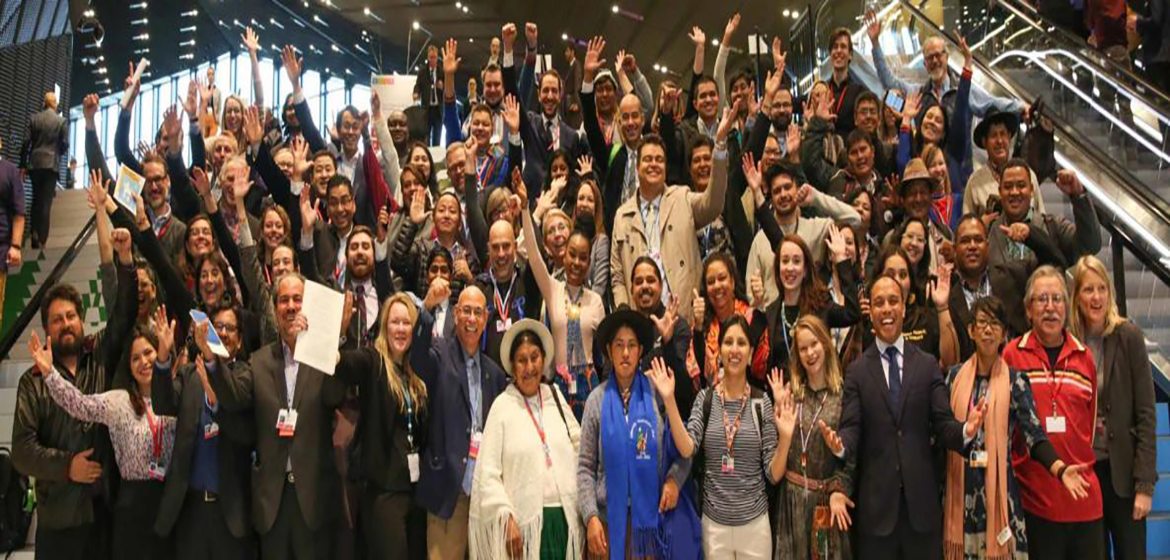UN Climate Change News, 10 December 2018 - Local communities, indigenous peoples and governments’ partnership and engagement in the climate change process has culminated in a milestone at COP24 in Katowice.
Parties agreed to launch the work of a facilitative working group that will scale up consideration of the experiences of local communities and indigenous peoples with climate change and efforts to respond to it.
The Local Communities and Indigenous Peoples Platform Facilitative Working Group consists of 14 members – half of which will be Party representatives, half of which will be indigenous peoples representatives. The door is also open for local communities to join the group in the future.
The aim of the platform is to preserve and strengthen indigenous and local knowledge systems, enhance the engagement of local communities and indigenous peoples in the UNFCCC process and integrate their considerations into climate change policy and action.
An indigenous peoples representative referred to the Platform as an unprecedented partnership between countries and indigenous peoples. “When indigenous peoples first came to the UN process in 1997, we had a dream. We had a dream that indigenous peoples and States can work together. With the Platform operationalized, we have realized that dream today.”
Many government representatives also applauded the Platform and its potential to become an inclusive, long-term and impactful space, where the perspectives of climate frontline communities, and indigenous peoples’ holistic views and in-depth knowledge of the environment, can help scale up and accelerate the global effort to mitigate and adapt to climate change in a holistic manner. The operationalization of the Platform was called historic and a strong sign of growing trust.
The COP Presidency affirmed its confidence in “governments, indigenous peoples and local communities’ working together in pursuit of a sustainable and climate-resilient world that leaves no one behind.”
Indigenous peoples constitute less than five percent of the world’s population, but they safeguard 80 percent of the world’s biodiversity. The global response to climate change requires applying all of the best knowledge available, including the perspectives of indigenous peoples and local communities at the front lines of climate change. Indigenous peoples are not only among the most vulnerable to its impacts, but they also hold many of the solutions to adapting to climate change.
To learn more about the platform please visit the .
Source:
Related to SDG 13: Climate action



